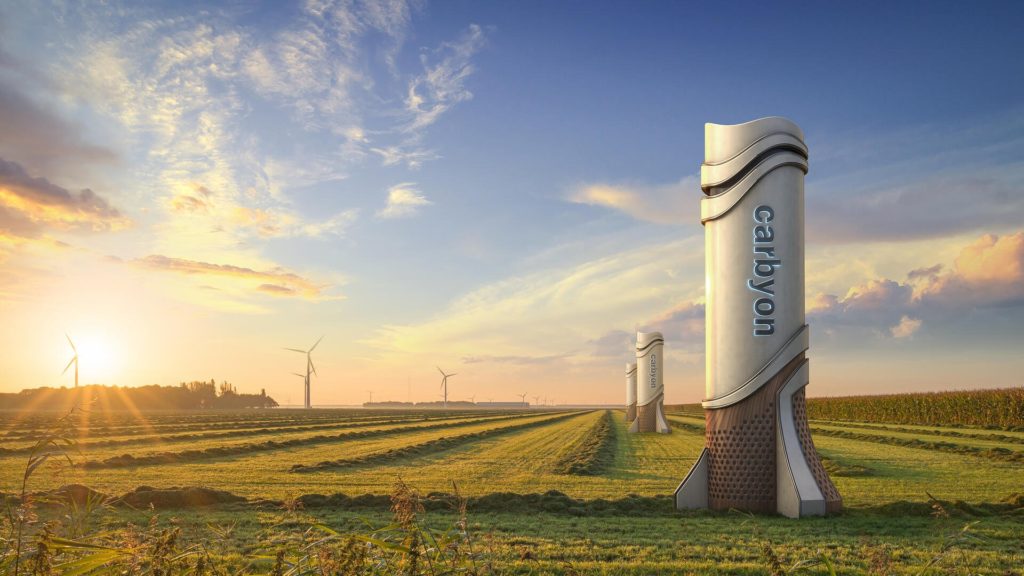(Editor’s note: This post on startup trends is part of our Tech Tuesdays series. Dispatches covers tech because so many of our highly skilled internationals are scientists and entrepreneurs.)
Twenty twenty-four is likely to continue the slowdown in startup investment we saw in 2023, when European startups saw 38-percent less backing than in 2022 This picture reflects the increasing caution investors are showing, given that the world economy narrowly avoided a recession last year while some of its biggest players – Germany, Japan and Britain – are currently experiencing one.
All the more reason, then, to choose the horse you’re backing even more carefully when it comes to
startups and industry sectors driving innovations to the way we live and work. Here are some startup trends to watch out for.
Generative AI
Artificial Intelligence has been all the rage for several years now, generating more than $200 billion in investment since the start of this decade alone. But in 2023 we saw the market hone in more specifically on generative AI. The large language model (LLM) ChatGPT helped bring AI-generated text into the popular consciousness, while Hollywood’s simultaneous disputes with actors and writers heralded the era of mass-market AI-generated video and audio.
There’s been a lot of panicked talk amongst employees of all industries, in fact, about the rise of the machines rendering them surplus to requirements. As Carlo van de Weijer explains, though, it’s not so much AI leaving us without work as our ability to work withAI that we should focus on.
Technology advances in generative AI are still very much in the ascendancy, and investment in this
area is bucking the overall downward trend in AI investment.
Some generative AI startups to watch this year are companies offering multimedia design tools such as RunwayML, Tome and Stability AI. There’s also Houndify by SoundHound – a cutting-edge speech recognition tool that recognises “deep meaning” – and the Ukrainian-founded Preply, which generates personalised lessons for language learners.

Green, green, green
As we edge closer to an impending worldwide climate catastrophe, the need for innovation in all things green – and investors’ interest in the field – will continue to grow at an increasing speed. The World Economic Forum held late last year listed six environmental factors among its Global Risks Top
10 for this decade.
Legislators are gradually catching up with public opinion on the issue in trying to force the hand of
multinationals, and more and more big backers ready to jump on board the sustainability boom.
The expansion of green investment that we’ll see this year can be broadly divided into three
categories:
• Green consumables
• Green energy
• Green tech
Green consumables are environmentally sustainable products that we, the general public, will be using in our daily lives. Additionally, there are some green consumable startups marketing to individual businesses.
European green consumable startups expected to do well this year include several from the textile
industry: sustainable 3D-knitting garment maker Byborre ; Miret’s recyclable footwear; eco-friendly bag and rucksack producer Got Bag; and the Vienna Textile Lab.
Additionally, there’s the Dutch inventor of sustainable household cleaners EzeeTabs; and Everphone, which rents smartphones and related services to companies according to the principle of use-not-buy.
Meanwhile, green energy investment this year will be dominated by carbon capture, utilization and storage (CUSS). Carbon capture is the process of recapturing carbon emissions as they are released into the atmosphere. They can then be recycled as useful products elsewhere, or put back into the ground where they came from.
CUSS is a major pillar of governmental plans to reach net-zero emissions, by massively reducing carbon output from essential industrial processes. Europe is awash with startups attempting to capture this carbon-consuming market, from France, Germany and Scandinavia to Estonia and Ireland.
Among the names to look out for are Greenlight Carbon Technologies (GCT), Meloon, Carbonaide, Arbon Earth, NeoCarbon, Carbyon, CarbonWorks, Silicate and RedoxNRG.
Beyond the energy sector, there are other areas of green technology innovation on the rise this year such as green cloud computing (GCC), and startups with a specific focus on environmental restoration like biotech firm Ginkgo Bioworks and the data-driven Vibrant Planet.
Blockchaining
While the cryptocurrency explosion of recent years seems to have turned to dust, that’s not to say one of the key technologies that drove it is no longer investor-friendly.
Blockchaining still has the potential to disrupt banking and finance in ways far more radical than the crypto-bubble anticipated. From making corporate and personal finances as well as big data more manageable and accessible to revolutionising cyber security, we haven’t even begun to see what
blockchaining could do for us.
This year could be the year for Web3 blockchaining technology startups, such as cyber security and quantum proofing specialist Zyber 365 and blockchain interface provider Covalent.
Healthcare
The COVID-19 pandemic obviously threw up global health challenges beyond the wildest estimations of most healthcare companies, resulting in a surge in production and innovation across the industry. That process has led to medical research and health-related technological development being given more attention (and financing) than it ever has been before.
Biotech industries are heading towards more than $500 billion of investment in the next couple of years.
Biotech startups set to do well in 2024 offer pharmaceutical cancer treatments (IDRx); stem cell-based disease prevention (Biosplice); treatments for previously untreatable diseases (Septerna); non-viral gene therapies (Intergalactic); and accelerated biomarker discoveries for more precise prescriptions (Scailyte).
And it’s not just investment in physical healthcare that’s going to experience an uptick this year.
COVID-19 also saw the proliferation of startups focused on mental healthcare, and if anything they’re
now gaining even more traction. There are now an estimated 10,000 to 20,000 mental health apps available at Apple and Android stores, the most of successful of which is the meditation and mindfulness app Headspace.
The workplace mental health company Lyra Health was valued at $5.5 billion in 2022.
Success stories like this one are likely to become more frequent as things like flexible office arrangements, mental health awareness programmes and pioneering mind therapies prove they’re
here to stay.
–––––––––––
Read more about tech here in Dispatches’ archives.

Alex Beaton
Alex Beaton is a writer from London, UK. His published works include a guide to starting a business in Warsaw, a fictionalised account of his time living in Egypt, and a 2013 report of the political situation in Bulgaria. He has also written extensively about his travels in France, Portugal, Italy and Malta.














